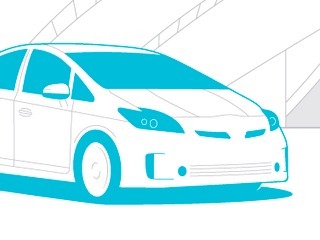
Uber scores another regulatory victory in London
Transport for London rejects five-minute delay requirement and other proposals opposed by Uber
Three months since its last victory in London, Uber just scored again.
Transport for London (TfL), the government body responsible for managing the city’s transportation systems, has decided to dismiss proposals that would have restricted ridesharing apps (like Uber) operating in London.

Here are some of the rejected proposals:
- Requirement that passengers and drivers wait to start a ride until five minutes (at a minimum) had elapsed since the ride order was first initiated.
- Ban preventing apps from showing which nearby cars were available.
- Requirement that private-hire companies (including Uber) allow customers to book cars up to a week in advance
- Restriction on drivers to only be registered to a single operator at a time.
In the newly announced regulations, all these proposals have been projected by TfL, delighting Uber:
“This is good news for Londoners and a victory for common sense,” said Jo Bertram, Uber’s general manager for the UK, Ireland & Nordics. “We’re pleased Transport for London has listened to the views of passengers and drivers, dropping the bonkers ideas proposed last year like compulsory five minute wait times and banning showing cars in apps.”
On the flip side, cabbies are not happy with the news.
One private group founded by the wife of a London cab driver, Action for Cabbies, just recently kickstarted a crowdfunding campaign aiming to raise £600,000. The campaign’s overall aim is “to seek a judicial review against Transport for London for failing to enforce the law.” Action for Cabbies believes that TfL has overstepped its jurisdiction by effectively legislating rules instead of just enforcing the existing law.
Though TfL rejected the proposals seen by Uber as most grievous and detrimental to its business operations, the government body did outline several other proposals that have been accepted. These include:
- A formal English language requirement for drivers.
- Guaranteed fare estimates for customers in advance of their journey.
- The provision of driver and vehicle details to customers, including a photo of the driver, before the start of each journey.
- Private hire operators to ensure that customers can speak to someone in the event of a problem with their journey.
- Even more robust 'hire and reward' insurance requirements.
- Improved record keeping and real-time provision of driver and vehicle information to TfL to make enforcement even easier and more effective.
Uber's last win in London was handed down by London's High Court last October when Justice Ouseley ruled that Uber did not break the law through its operations in the city. The judge argued that Uber's smartphone app is not technically a "taximeter," the electronic device ordinary taxis use to calculate passenger fares. As with today's news, Uber called the October ruling "a victory for common sense."
Related Companies, Investors, and Entrepreneurs
Uber
Startup/Business
Joined Vator on
Uber is a ridesharing service headquartered in San Francisco, United States, which operates in multiple international cities. The company uses a smartphone application to arrange rides between riders and drivers.
Related News

